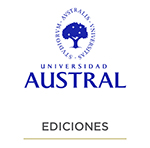Dignity of Legislation and Legal Interpretation in Jeremy Waldron
Abstract
This paper intends to throw light, on the one hand, upon Waldron’s theory of legal interpretation and, on the other, upon whether or not there is a relationship between the latter and his normative theory on the sources of law. More specifically, the author wonders whether there is any relationship between the social sources thesis defended by Waldron’s normative positivism (the special dignity/authority thesis of democratic legislation) and his theory of legal interpretation (textualist or integrity thesis?). The lesson that we hope to learn from this analysis is that if one intends to make a normative theory of law, it is not possible to completely separate the static aspect of law (in this case, theory of sources) from its dynamic face (theory of legal interpretation).
Downloads
References
Atienza M. y Ruiz Manero, J. (2007). Las piezas del derecho. Teoría de los enunciados jurídicos (4a ed.). Ariel.
Dworkin, R. (1979). Taking Rights Seriously. Duckworth.
Dworkin, R. (1986a). Is there Really No Right Answer in Hard Cases. En A Matter of Principle (pp. 119-145). Harvard University Press.
Dworkin, R. (1986b). Law’s Empire. Harvard University Press.
Dworkin, R. (1989). Los derechos en serio (Trad. M. Guastavino). Ariel.
Dworkin, R. (2014). Justicia para erizos (Trad. H. Pons). Fondo de Cultura Económica.
Etcheverry, J. B. (2010). La relevancia del derecho que remite a la moral. Problema, (4), 205-242.
Etcheverry, J. B. (2014). Scope and Limits of General and Descriptive Legal Theories. Rivista di filosofía del diritto, (1), 151-170.
Etcheverry, J. B. (2015). La relevancia de la determinación judicial y la tesis de la respuesta más justa. Díkaion, 24(1), 66-85.
Gaido, P. (2018). La dignidad de la legislación y el rol de los jueces. Manuscrito presentado en el Foro especial con Jeremy Waldron de las XXXII Jornadas Nacionales de Filosofía del Derecho. Buenos Aires, 22 al 23 de agosto de 2018.
Gallego, J. (2019). La teoría “dworkiniana” del razonamiento judicial de Jeremy Waldron: el eslabón ignorado. Isonomía, (50), 1-48.
García-Mansilla, M. (2014). ¿Presunción de constitucionalidad o presunción de libertad? Un análisis desde el artículo 33 de la constitución nacional. Academia Nacional de Ciencias Morales y Políticas.
Riggs contra Palmer. Tribunal de Apelaciones de Nueva York - 115 NY 506. (2007-2008). Revista Telemática de Filosofía del Derecho, (11), 363-374 (Trad. R. M. Jiménez Cano, J. Fabra y C. Guzmán).
Rodríguez-Blanco, V. (2014). Law and Authority Under the Guise of the Good. Hart Publishing.
Tejeda Barbarito, E. (2022). La legitimidad del control de constitucionalidad en un Sistema democrático de gobierno en el pensamiento de Jeremy Waldron y Ronald Dworkin (Tesis doctoral). Universidad Austral.
Vermeule, A. (2022). Common Good Constitutionalism. Wiley.
Waldron, J. (1994). Vagueness in Law and Language: Some Philosophical Issues. California Law Review, 82(3), 509-540.
Waldron, J. (1999). The Dignity of Legislation. Cambridge University Press.
Waldron, J. (2003). Legislating with Integrity. Fordham Law Review, 72(2), 373-394.
Waldron, J. (2005). Derecho y desacuerdos (Trad. J. L Martí y A. Quiroga). Marcial Pons.
Waldron, J. (2006). The Core of the Case against Judicial Review. Yale Law Journal, 115(6), 1346-1406.
Waldron, J. (2008). Lucky in Your Judge. Theoretical Inquiries in Law, 9(1), 185-216.
Waldron, J. (2010). The Rule of Law and the Importance of Procedure. NYU School of Law, Public Law Research Paper, (10), 73.
Waldron, J. (2011). Vagueness and the Guidance of Action. En Marmor, A. y Soames, S. (Eds.), Philosophical Foundations of Language in the Law (pp. 105-129). University Press.
Waldron, J. (2018). Contra el gobierno de los jueces (Trad. L. García Jaramillo, F. J. Gaxiola y S. Virgüez Ruiz). Siglo XXI.
Zambrano, P. (2010). El derecho como razón excluyente para la acción: una aproximación desde la teoría iusnaturalista de John Finnis. Problema, (4), 323-366.
Copyright (c) 2022 Juan B. Etcheverry

This work is licensed under a Creative Commons Attribution-NonCommercial-NoDerivatives 4.0 International License.
This license allows the copy, distribution, exhibition and representation of the work provided authorship is acknowledged and the work is properly quoted. Commercial use of the original work or the generation of derived works are not allowed.
The authors hereby guarantee the right to the first publication of the work to the Revista Jurídica Austral.
















































